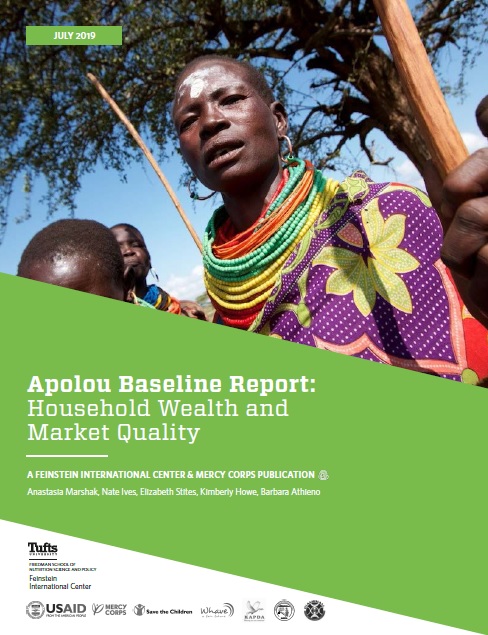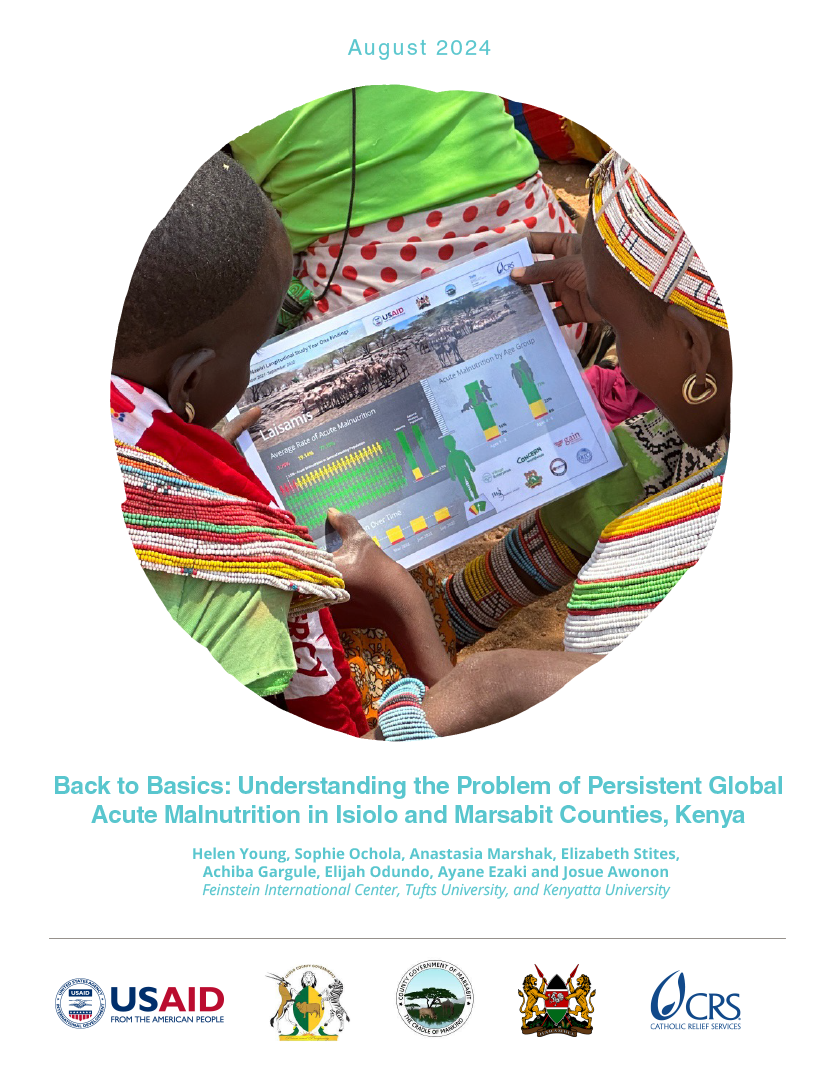This report reflects findings from the baseline quantitative study of a four-year research project in the Karamoja sub-region of Uganda. We describe different aspects of wealth, such as animal-related wealth and farm-related wealth, and how they relate to two indices of wealth that we created as part of this study. We then examine how different wealth indices correlate with geographical and household characteristics, including food insecurity. We further explore market access and quality, and the relationship between these factors, Mercy Corps program layering, and wealth.
The findings draw on survey research in a sample of Mercy Corps programming communities in Karamoja. A team from the Feinstein International Center, Friedman School of Nutrition Science and Policy at Tufts University in collaboration with Mercy Corps conducted this research between November 2018 and January 2019 as part of the USAID/FFP-funded Apolou Activity. Midline and endline data collection are expected to take place in 2019 and 2020.
The overall study, which also consists of a qualitative component, explores how the recent transformations in the Karamoja sub-region, including expansion of markets, increase in trade, and monetization, are affecting households and communities.







